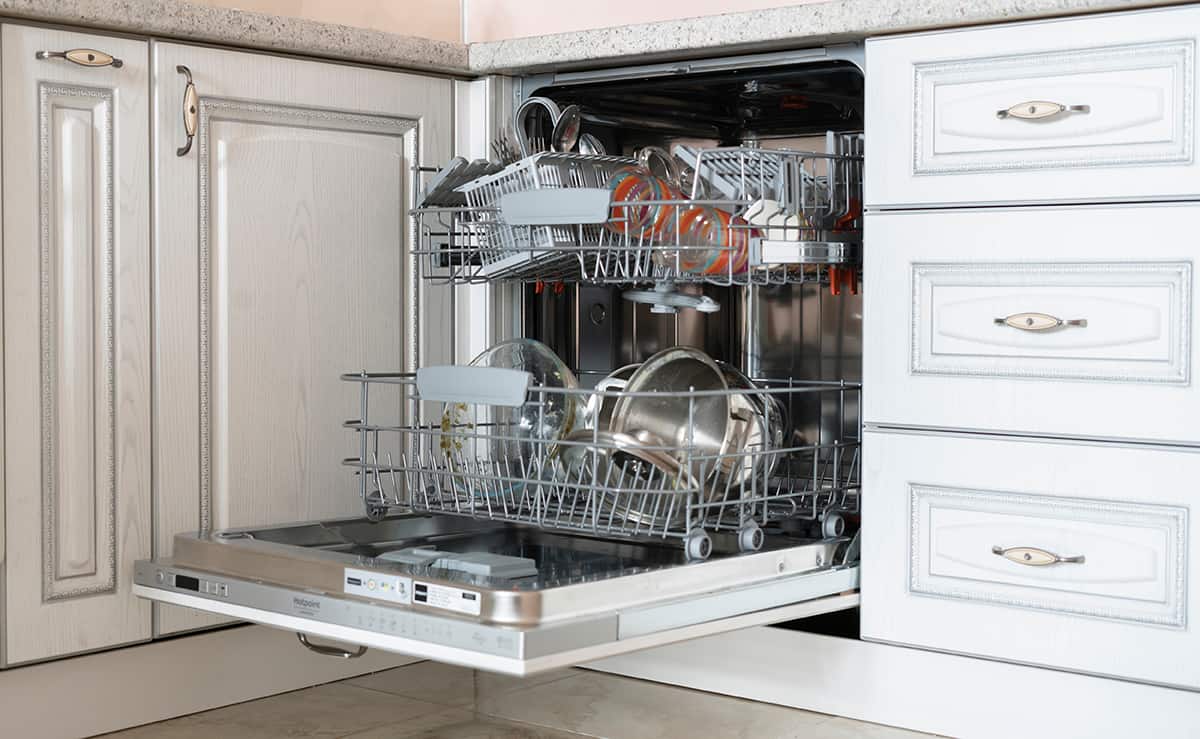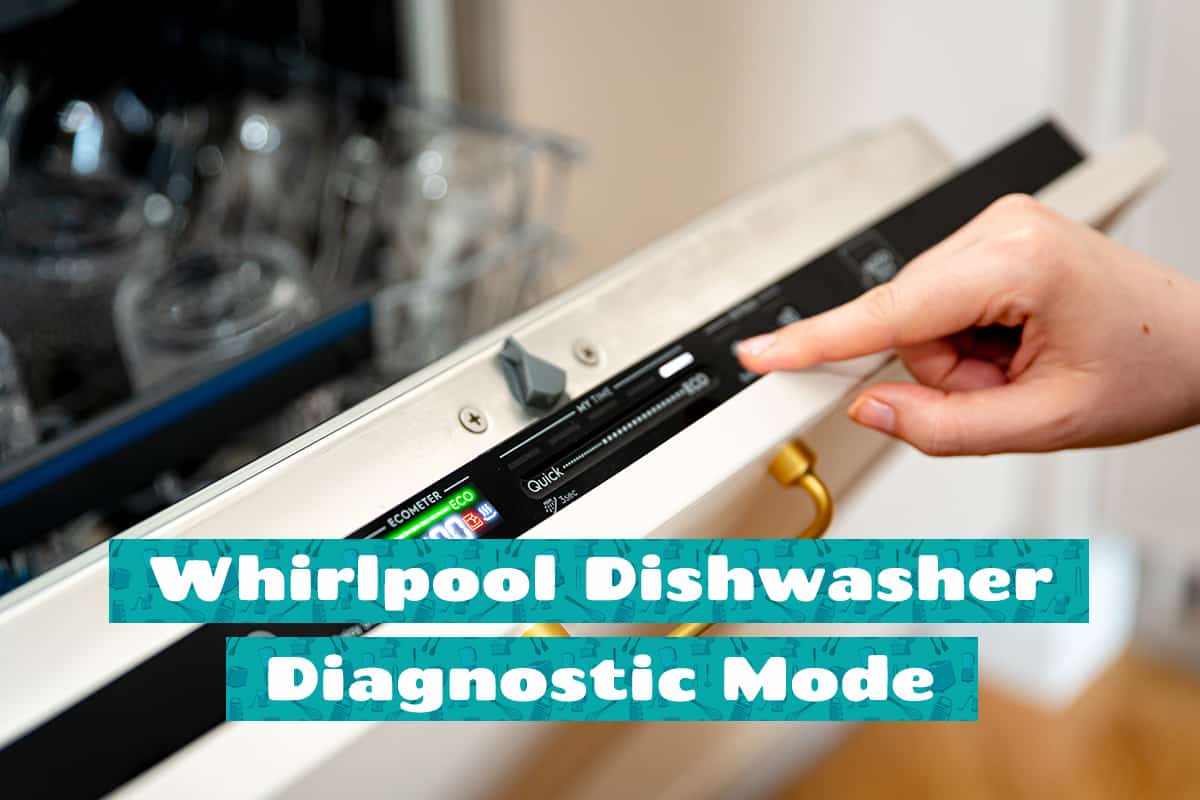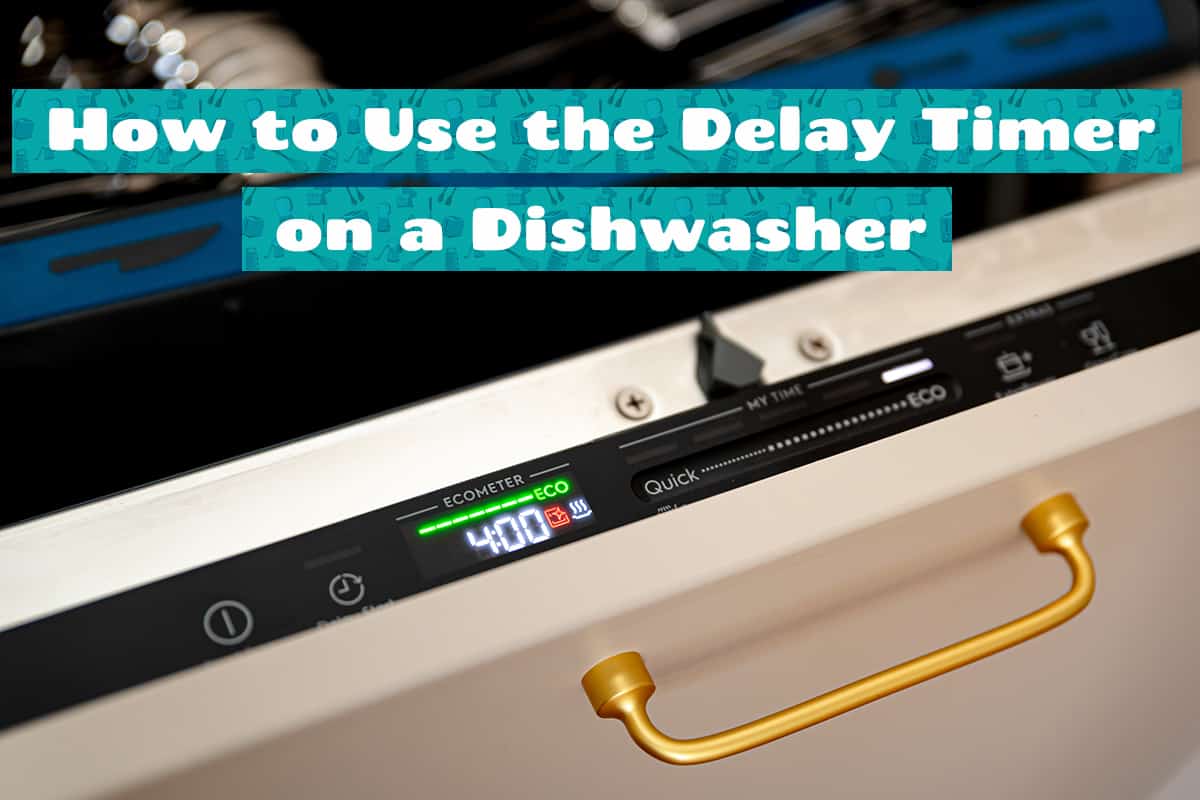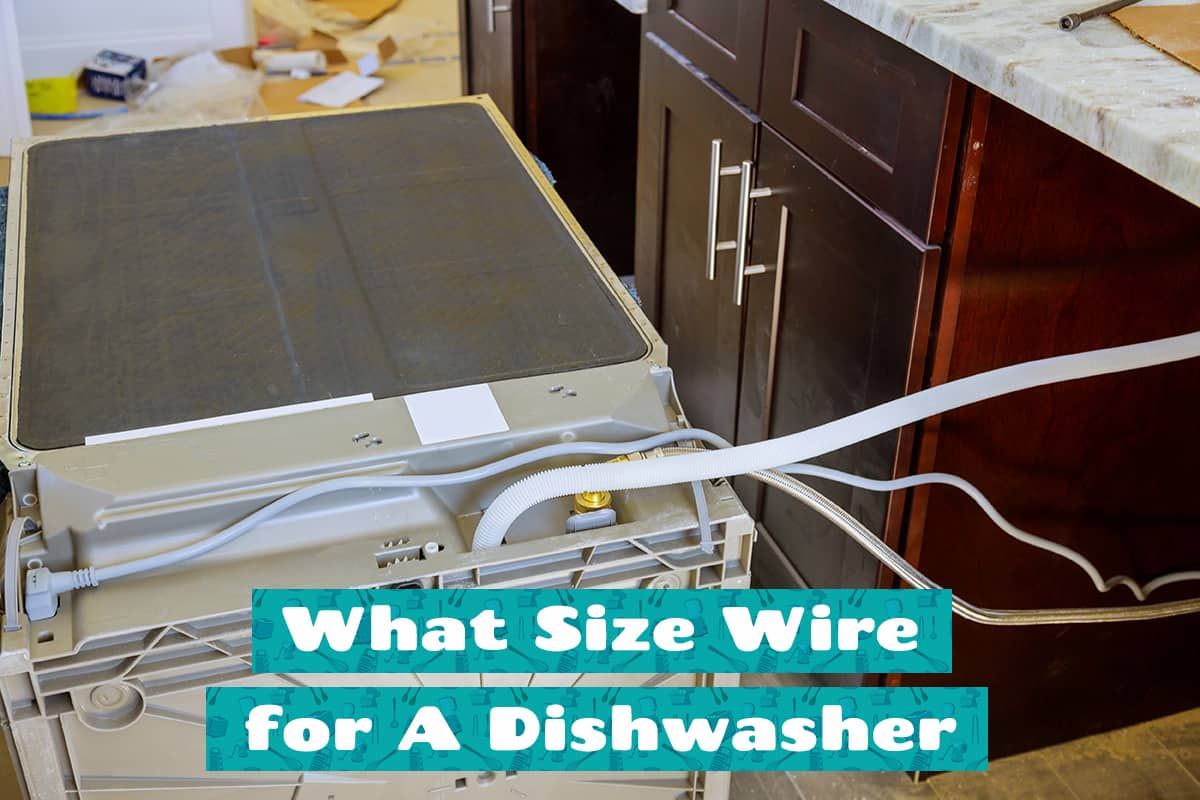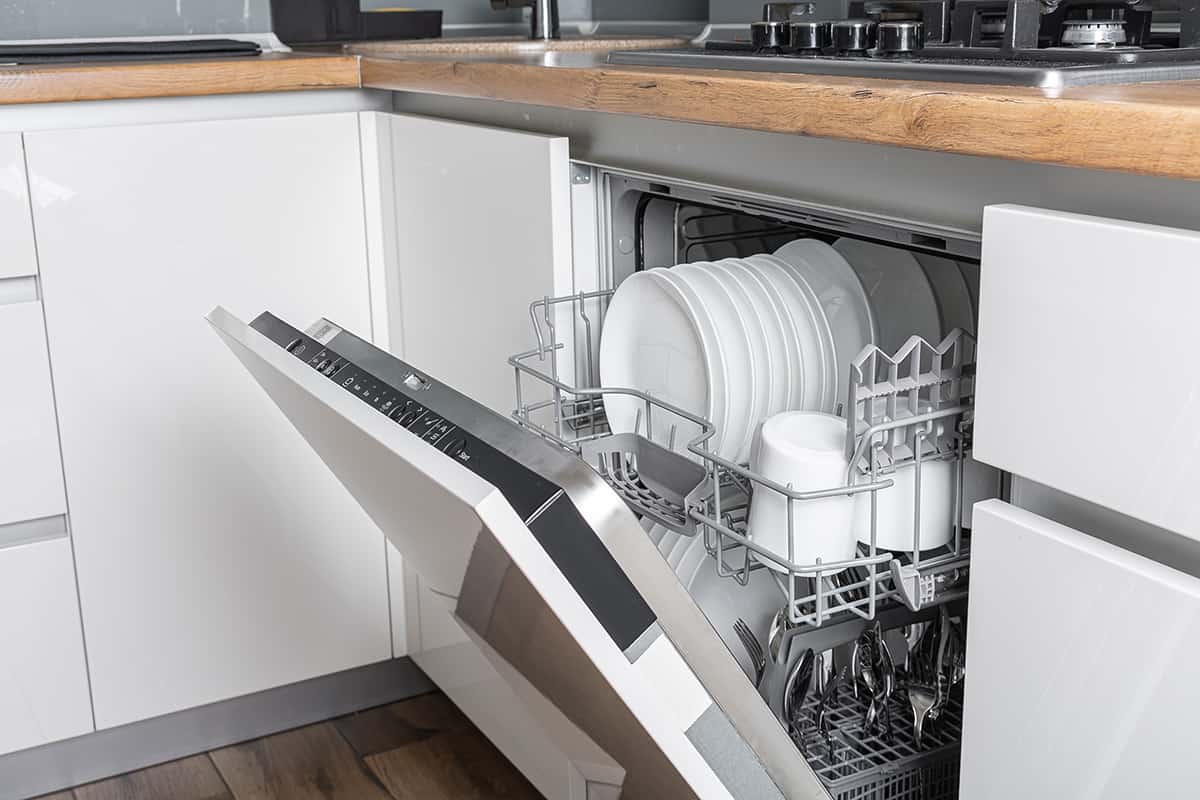Out of all appliances at home, the last place you might expect to find an ant infestation is inside the dishwasher, yet it’s a reality many of us have to live with. Even though dishwashers use heated water to wash and rinse our dishes, it’s not impossible for ants to go on the hunt for food inside the machine. So, what do you do when you find ants inside your dishwasher?
If your dishwasher is dirty, the smell and presence of old food remnants might attract ants. To get rid of them, you can set up ant traps, clean the filter and drain, run an empty rinse cycle, or clean your entire kitchen.
For the most part, the methods mentioned above should stop ants from getting into your dishwasher. You can find more details on how to implement these solutions in the following sections.
How Do Ants Get in Dishwashers?
If you pay close attention to your dishwasher’s design, you’ll find that there are all sorts of gaps and openings that a tiny creature, such as an ant, can walk through. Look behind your dishwasher and you’ll find all sorts of holes, crevices, vents, etc.
However, you cannot plug these holes in the hope that ants will stop walking in through them. After all, the holes are there to vent steam and heat out of the dishwasher, and shutting them might cause the machine to succumb to overheating.
That said, you should plug in any holes or cracks that weren’t put there by the manufacturer. Over time, your dishwasher might have a crack on its side, which makes for the perfect entry point for insects.
Ants wouldn’t bother making their way into your dishwasher if there was no reason for doing so. Leaving old food at the bottom of your dishwasher is a perfect invitation for ants to infest the machine and become a nuisance.
Getting Rid of Ants from the Dishwasher
Have you ever left a dirty plate out for a day? If you have, then odds are you’ve probably seen them covered in ants and all sorts of creatures looking for a source of food. While mostly harmless, ant infestations are no fun to deal with, especially when it takes place inside a dishwasher.
Your dishwasher can become the perfect place for ants to hunt for food. After all, that’s where a lot of food particles end up. And the smell of the remnants will attract ants from all over your home.
Luckily, an ant infestation inside your dishwasher isn’t the end of the world. There are multiple solutions you can try to stop ants from crawling into your dishwasher in search of food, which I’ll explain down below.
Ants in Dishwasher—What to Do?
Set up ant traps
It goes without saying that ants aren’t particularly fond of ant traps. There are all kinds of ant traps to choose from, including adhesives and liquid toxins. You can choose whichever ant trap mechanism you prefer.
I would highly recommend using ant bait, such as TERRO T300B. This product is a liquid bait that attracts ants. Any pesky insect that partakes will carry the toxin back to its nest, which will spread and possibly wipe out the entire colony.
If you want to use this ant trap, place it near the entry points of your dishwasher. That way, the attracted ants will not venture into your dishwasher since they would have fallen for the bait just outside of it.
Clean the filter and drain line
The 2 most obvious spots you will find old food remnants are in the filter and the dishwasher’s drain line. Over numerous cycles, the filter and drain line may become clogged with solid food particles, and ants will consider the odor as an invitation to feast.
What you can do is remove the filter assembly by twisting it out of the base of your dishwasher, placing the parts in a bath of soapy water, and scrubbing them clean before reassembling the filter components and reinstalling them in your dishwasher.
However, while you’re cleaning the filter, you might as well clear the drain line. You would need to do so anyway since, as time goes on, solid particles might have created a large blockage that could prevent water from draining properly.
To clean the drain line, mix a 1:4 solution of baking soda and water. Let the solution sit for 1 minute before pouring it down your dishwasher’s drain line or your kitchen sink if the drain line goes through the garbage disposal. Let the solution sit for an additional 10-15 minutes before flushing it down with cold water.
Run an empty rinse cycle
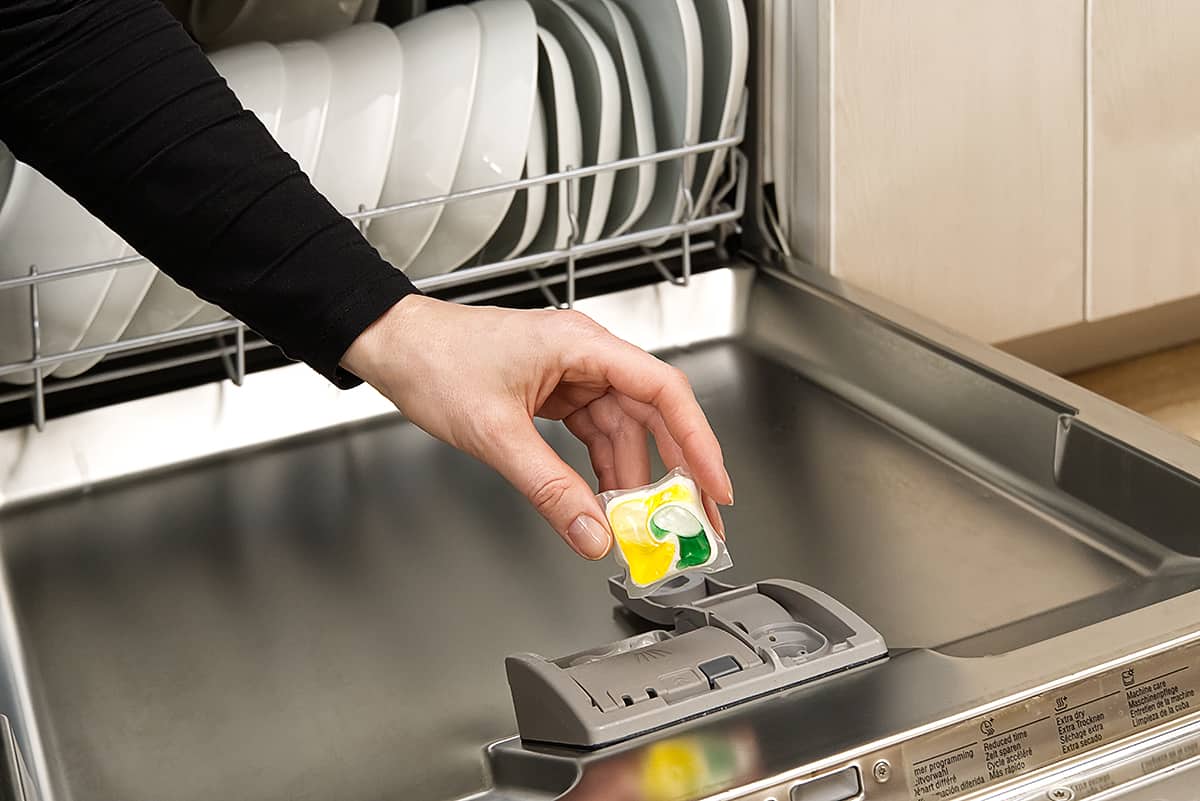
Running an empty rinse cycle is not a standalone solution since it will not get rid of odors and solid food particles from your dishwasher’s drain line. However, it can work as a temporary solution to get rid of ants from your dishwasher while you’re waiting for the ant trap to arrive at your doorstep.
If you want to get rid of ants from your dishwasher, leave the dishracks and their loads inside the dishwasher before running a rinse cycle. However, if you want to clean the entire interior of the machine, remove all of the dishracks.
At the very least, any ants inside your dishwasher will be flushed down the drain line, never to be seen again. However, if there’s a solid buildup of food somewhere down in the drain, it will only be a matter of time before you have another infestation of ants to deal with.
Clean your entire kitchen
Here is the most annoying yet possibly most effective solution: clean your entire kitchen. I’m talking about cleaning your pantry, your sink, your garbage disposal, your fridge, the baseboards, the bottom cabinets, and anywhere else you think ants might seek refuge.
While you’re at it, you might want to try mixing a 1:1 solution of vinegar and water and using it to wipe down the surface of your dishwasher, both on the inside and out. Vinegar will eliminate old food smells, so ants might not know to look inside your dishwasher for nourishment.
Can I Use an Insecticide Spray Inside My Dishwasher?
No, you should absolutely not spray any harsh chemicals inside your dishwasher.
First of all, there’s no telling how long the chemicals and odors will linger, meaning that subsequent wash cycles might contain traces of the insecticide. Also, the chemicals found in insecticides might wreak havoc on the stainless-steel lining of your dishwasher. And when rust appears on the interior lining, it might grow at an alarming rate and force you to replace the machine entirely.
Also, if you’re unaware, the water that drains from your dishwasher will end up in the ocean. The last thing you want to do is poison sea animals by sending traces of insecticide down the drain that will pollute their habitat.
Can Ants Damage Dishwashers?

Thankfully, no—ants cannot damage dishwashers.
As annoying as they are, ants do not go around looking for wires to chew. For the most part, ants will only go inside your dishwasher if they can smell food. If your dishwasher doesn’t smell of old, dirty food, then ants will have no reason to look in the machine in the first place.
Also, you don’t need to worry about ants setting up a new colony inside your dishwasher. Dishwashers are far too moist for ants to create a nest, so if your dishwasher is infested with tiny critters, you don’t have to look for a sandy anthill or intricate mud chambers to tear down.
Do I Need to Call a Professional Exterminator?
Ants aren’t usually a cause for concern. Having ants in your kitchen and dishwasher can be upsetting, but for the majority of the time, there’s no need to call a professional exterminator to take care of the problem once and for all.
However, if your kitchen has been infested with ants multiple times in a week, or if your find another ant infestation after cleaning your kitchen from top to bottom, then it might be time to call a trained professional to take the ants out.
Many DIY solutions may only end up forcing ants to seek refuge in their nests. Some ants will be driven even farther into their hiding spots due to the smell of harsh chemical traps. When the coast is clear, they’ll return and become an even bigger headache.
So, you should really play it by ear. If you’re sick and tired of ants crawling all over your newly washed dishes, then you know who to call.
Can I Use Vinegar Inside My Dishwasher?
If you don’t have baking soda to make a drain cleaner, you can most certainly use vinegar as a substitute. However, make sure you dilute the vinegar enough (1:4 parts water) to prevent the highly acidic liquid from destroying the metallic lining of your dishwasher’s interior.
Vinegar is also naturally antimicrobial, so it will do a lot more than just get rid of old food smells from your dishwasher.
